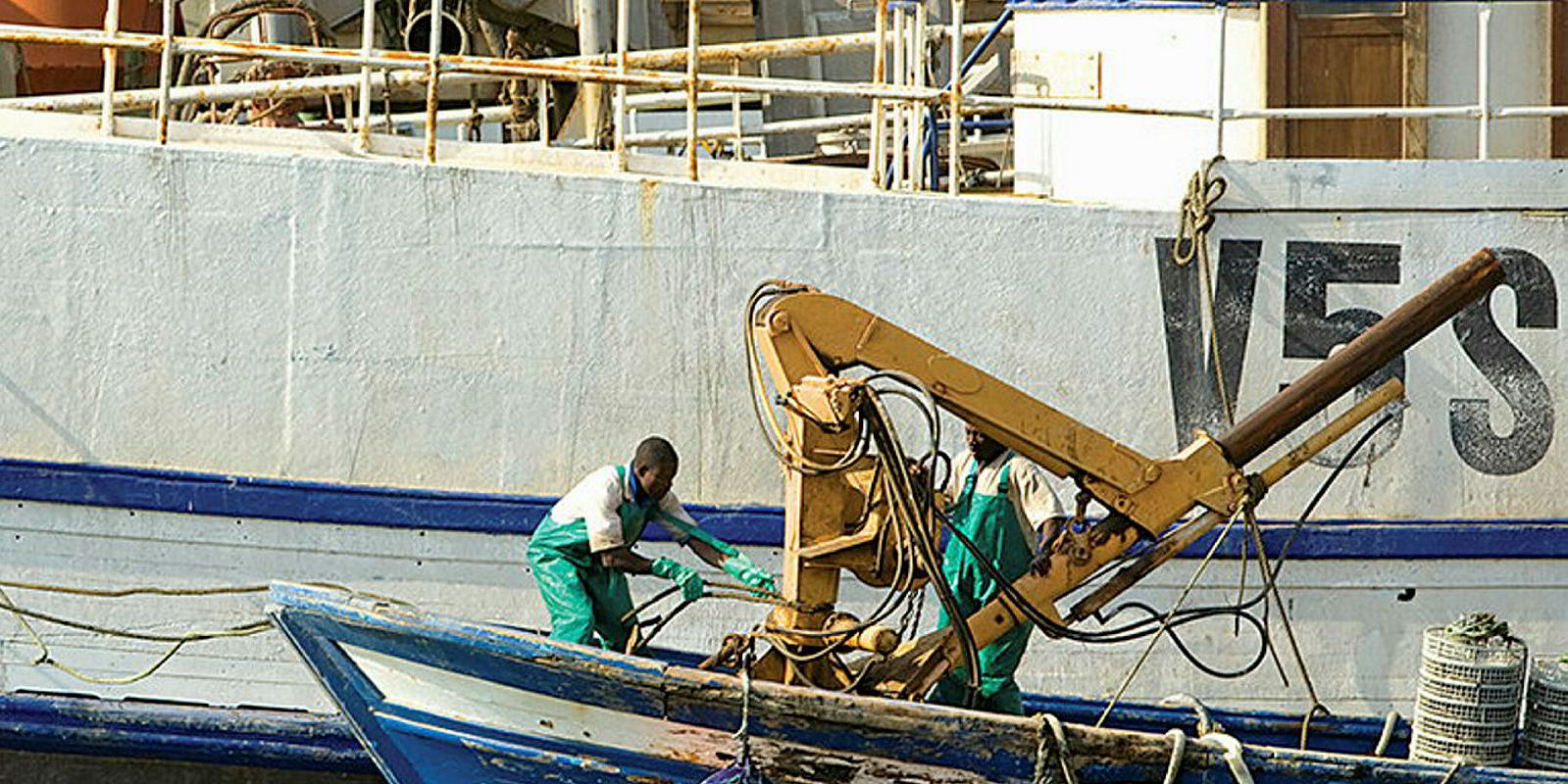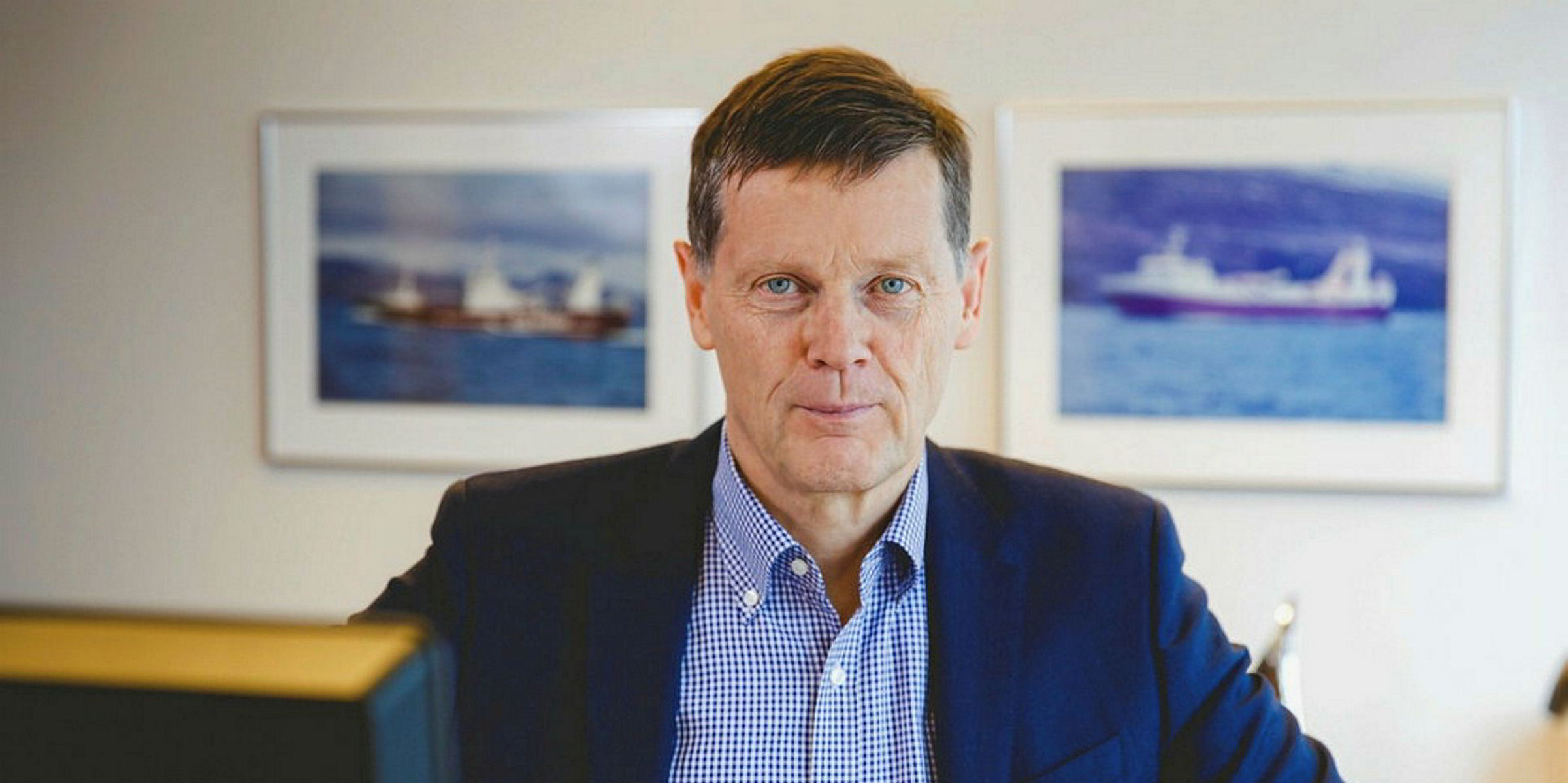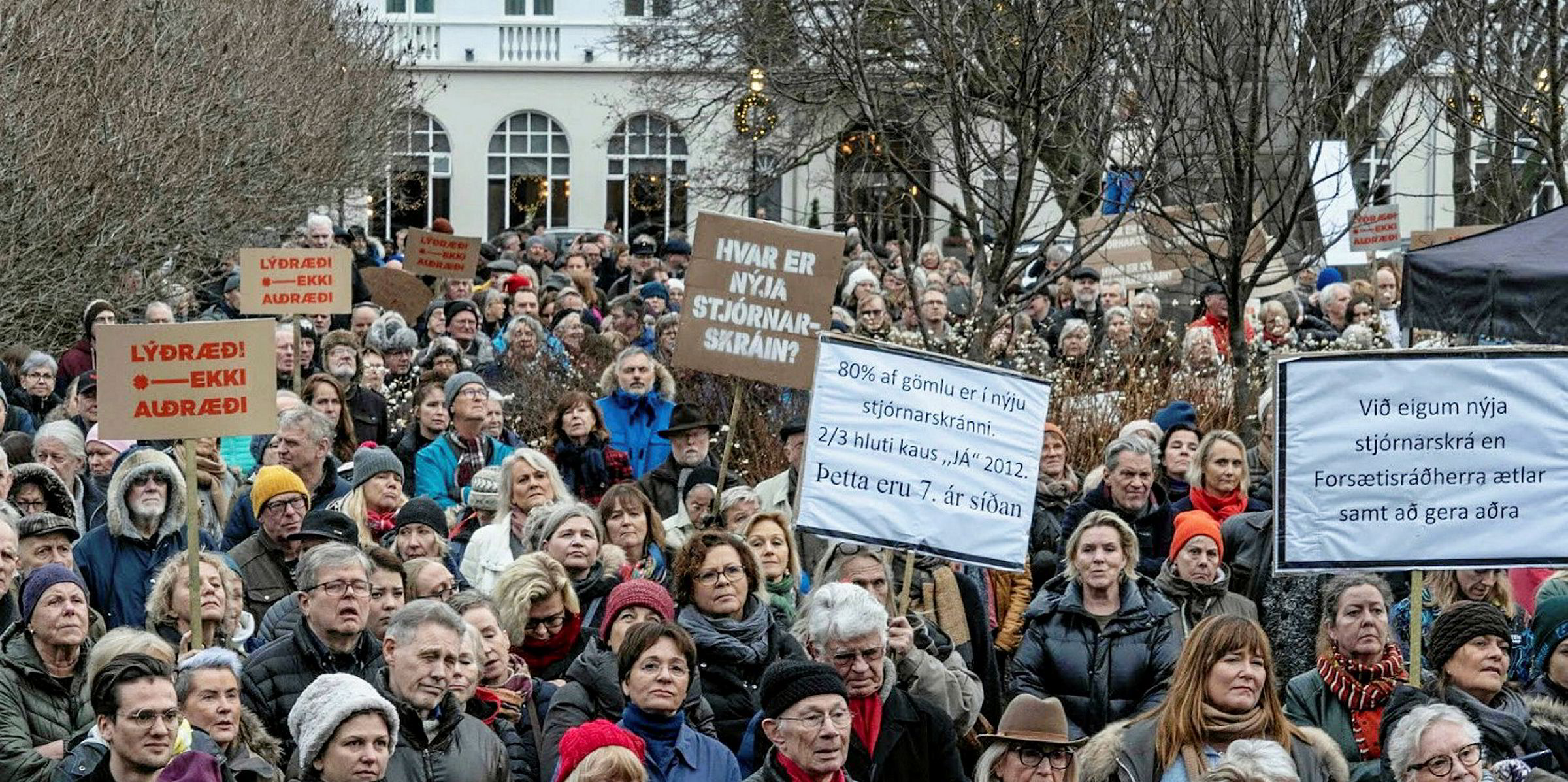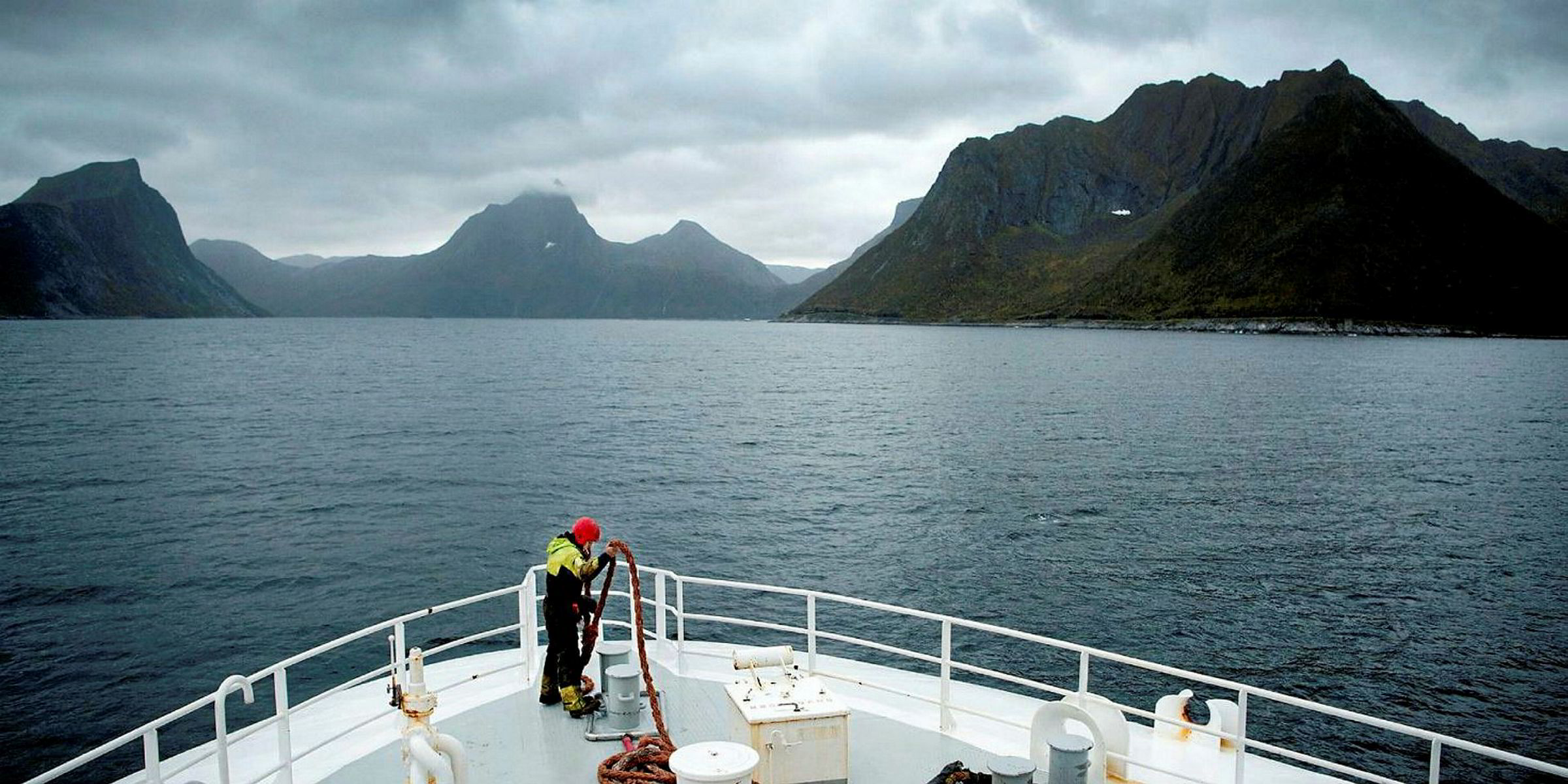Namibia's fishing policy has been held up time and time again as a successful model of shared resources, domestic strength and structure.
Take a quick scout of the internet and there are dozens of papers that use the Namibian fishing industry as an example of balance: a developing world country that stands out with a system allowing foreign investment, but not at the cost of local jobs and people.
Once overrun by foreign fishing vessels from Spain, China, the Soviet Union and elsewhere, a virtual fishing free-for-all exploited the country's rich fishing grounds and decimated its stocks. But Namibia's independence from South Africa in 1990 flicked a switch, focusing the Namibian government on self-sufficiency and reclamation of its resources.
And with that, the country reshaped its fisheries policy, declaring an exclusive economic zone of 200 nautical miles, expelling foreign fleets from its waters and, unlike many of its African neighbors, moving away from bilateral fishing access agreements many of them had -- and still have -- with the EU and other large fishing nations.
Instead, Namibia established its own policy, setting up its own rules for foreign investors, enforcing a structure that allowed them access to its fishing waters but only through joint ventures with Namibian citizens.
At the point of inception, new TACs were issued for each of Namibia's core species, including hake, horse mackerel, monkfish, crab, lobster and pilchards -- which were then divvied up into harvesting rights from which the fisheries ministry could issue individual quotas.
Rights were issued to bidders for a period of between four and 20 years, depending on various
factors such as investment in vessels, fishing experience and the level of Namibian ownership. Individual quotas were then issued to harvest-rights holders, with preference given to firms owned by Namibians that employed Namibian citizens, with vessels not licenced to fish unless they have certain quota of Namibian ownership and crew.
The policy has been transformational, with now healthy, sustainable fishing stocks and a huge contribution to the Namibian economy, accounting for 3.5 percent of gross domestic product and 15 percent by value of the country's exports.
But Namibia itself is a complex country which, despite having a moderate income, has a huge wealth divide, something the fishing industry has occasionally been accused of contributing to.
Building controversy
While the same policy still stands, in recent years the current Namibian administration has come under fire for what some deem as unfair allocation of rights and quotas.
Population: 2.5 million
GDP: $13.8 billion
Unemployment rate: 34% (2016, World Bank)
Population below poverty line: 17.4% (2015, World Bank)
Exports: Diamonds, copper, gold, zinc, lead, uranium, cattle, seafood
Export partners: South Africa, Botswana, Switzerland, Zambia, China, Italy
Key fishing species:
Horse mackerel (TAC: 349,000 metric tons)
Hake (TAC: 154,000 metric tons)
Monkfish (TAC: 8,000 metric tons)
Crab (TAC: 3,400 metric tons)
Rock lobster (TAC: 200 metric tons)
Pilchards (three year moratorium in place)
Aquaculture production: 335 metric tons
Last year, many of the rights holders came to the end of their licences, and Fisheries Minister Bernhard Esau, who stepped down from his position two weeks ago and is now in police custody, demanded a review, requiring justification and paperwork from companies as to how they had utilized their rights over the last few years and what they had brought to the Namibian economy.
He also made a controversial step in dishing out quotas to state fishing company Fishcor, a move he defended in an address earlier this year with the argument that the company would use the quota to invest in new jobs for Namibians, something other companies had allegedly failed to do.
"I am aware of the arguments by some critics of this project, who are arguing that if they were assured of quotas, they would also invest like Fishcor," said Esau to the industry in his February 2019 ministerial address.
"Let us remember that some companies in our industry used to receive more than 50,000 metric tons, some even 100,000 metric tons of horse mackerel quota annually for almost 20 years, as a historical allocation entitlement. What these companies got, and for such a long time, was more than the 50,000 metric ton quota agreed between Fishcor and the Ministry, but did not create even 500 jobs to handle the large amount of quota they periodically received."
Changing the playing field
Last May Esau also announced new rules making it compulsory for fishing quota applicants to use their proprietary limited company instead of a "close corporation," as was the case in the past, reported The Namibian at the time.
The difference between the two is small, but, in general, close corporations are often the type of company chosen by small business owners and made up of "members" rather than directors and shareholders and disallow companies to be among those "members" and are used by most quota beneficiaries in the country.
This, Esau said, would address the current practice where vulnerable communities and individuals were used by some not-for-profit companies, close corporations or trusts to apply for fishing rights.
“These communities or individuals are promised certain shareholding, e.g. 10 or 15 percent shares in the company," the minister stated.
"Once these section 21 companies [not-for-profits], close corporations or trusts receive fishing rights, they often exclude these vulnerable communities or persons from benefiting in dividends sharing."
The announcement divided opinion among industry players, said the Namibian, with some believing the move would allow wealthier parties to dominate fishing rights.
There was talk at the time of Esau's announcement that the new rule would exclude publicly listed companies, whose shareholdings could change from one day to the next, but a source close to the sector told IntraFish he didn't believe this to be the case.
Although, since Esau’s announcement in May last year, many rights and quotas still hang in the balance, leaving more questions than answers hanging over the sector, a situation unlikely to be helped by the arrest of Esau and his fellow justice minister and the ongoing Samherji scandal.








